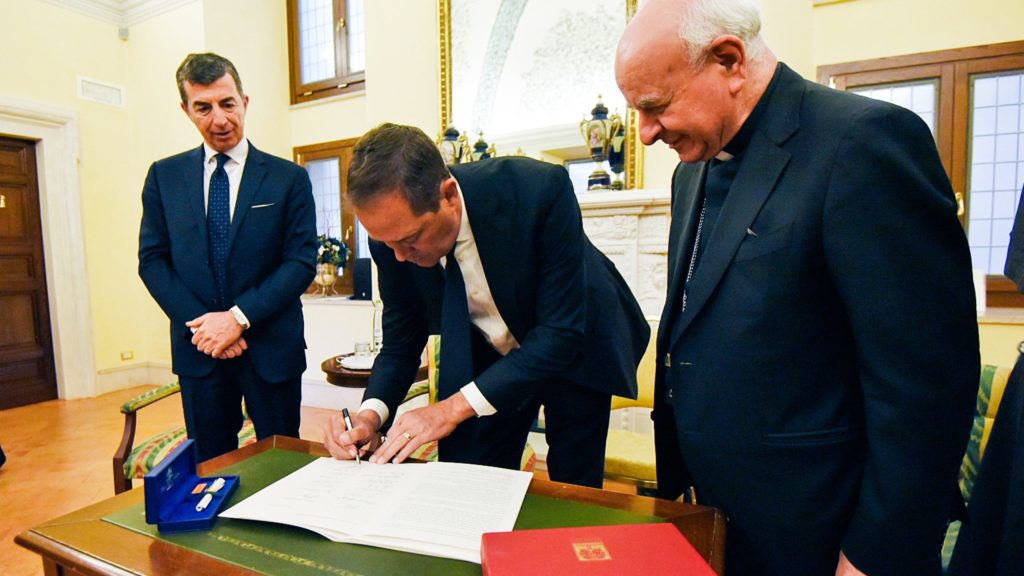Pope Francis met briefly with Chuck Robbins, CEO of Cisco Systems -- the U.S. digital communications conglomerate -- after Robbins signed on to the "Rome Call for AI Ethics," a project coordinated by the Pontifical Academy for Life.
Artificial Intelligence "is no longer a topic just for experts, and reflecting on the ethics of its development is more urgent than ever," said Archbishop Vincenzo Paglia, president of the pontifical academy and its RenAIssance Foundation, which promotes projects looking at the ethics of AI and its impact.
Franciscan Father Paolo Benanti, a professor at Rome's Pontifical Gregorian University and member of the U.N. Artificial Intelligence Advisory Board, also attended the signing ceremony at the Vatican April 24. Father Benanti has become a leading voice on AI issues and a global ambassador for the Catholic Church's advocacy of ethical AI development.
Launched in 2020, the Rome Call originally brought together the pontifical academy, the leaders of Microsoft and IBM -- two of the world's leading developers of artificial intelligence software -- the Italian government and the U.N. Food and Agriculture Organization to promote ethical choices in developing the technology, legal standards in regulating it and education efforts to help people understand artificial intelligence and its role in a vast array of applications.
Other companies, governments, universities and religious leaders have signed the call, pledging to ensure "human beings and nature are at the heart of how digital innovation is developed" and that they are "supported rather than gradually replaced by technologies that behave like rational actors but are in no way human."
The signatories also are pushing for the development of "algorethics," an ethical framework to ensure the algorithms used to build artificially intelligent systems promote what is true, fair and ethical.
A press release from the pontifical academy quoted Robbins as saying, "AI is fundamentally changing our world -- presenting vast opportunities, but also new challenges. For nearly 40 years Cisco has built the networks that connect people and organizations across the globe, and today we are building the critical infrastructure and security solutions that will power the AI revolution."
"The Rome Call principles," he said, "align with Cisco's core belief that technology must be built on a foundation of trust at the highest levels in order to power an inclusive future for all."
In February, Cisco launched a partnership with tech giant NVIDIA to provide advanced AI infrastructure solutions on a large scale with the aim of giving businesses the computing power to integrate AI into their workflow.

